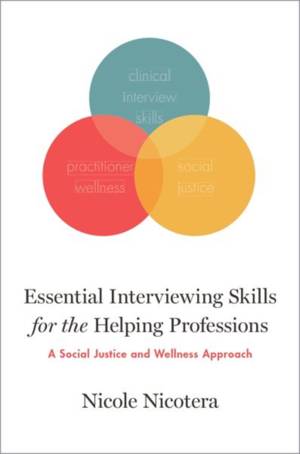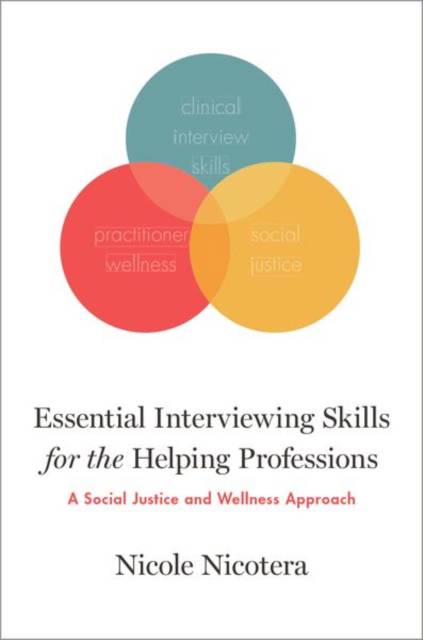
- Afhalen na 1 uur in een winkel met voorraad
- Gratis thuislevering in België vanaf € 30
- Ruim aanbod met 7 miljoen producten
- Afhalen na 1 uur in een winkel met voorraad
- Gratis thuislevering in België vanaf € 30
- Ruim aanbod met 7 miljoen producten
Zoeken
Essential Interviewing Skills for the Helping Professions
A Social Justice and Wellness Approach
Nicole Nicotera
Paperback | Engels
€ 91,95
+ 183 punten
Omschrijving
Essential Interviewing Skills for the Helping Professions reaches beyond most other essential skills for clinical interviewing books with its emphasis on social justice, attention to the role of microaggressions in clinical practice, and the upmost importance of practitioner wellness as integral to longevity in the helping professions. Each chapter addresses interviewing skills that are foundational to the helping professions from mental health to physical health, includes detailed exercises, addresses social justice, and discusses practitioner wellness opportunities. Sometimes clients' stories are fraught with trauma, other times their stories are bound within generations of substance addiction or family violence, while other clinical stories present personal and social obstacles that arise from years of oppression at the hands of prejudice and discrimination. This book therefore goes beyond the basic ideas of choosing when to use an open question or to reflect emotions by covering how to integrate social justice and knowledge of power, privilege, and oppression into the interviewing arena. Essential interviewing skills require the practitioner to not only purposefully listen to the client's story, but also to be self-aware and willing to acknowledge mistakes and learn from them. The work of the clinical interviewer is a continuous challenge of balancing listening, responding, action, and self-awareness, and this book is designed to help.
Specificaties
Betrokkenen
- Auteur(s):
- Uitgeverij:
Inhoud
- Aantal bladzijden:
- 112
- Taal:
- Engels
Eigenschappen
- Productcode (EAN):
- 9780190876876
- Verschijningsdatum:
- 21/06/2018
- Uitvoering:
- Paperback
- Formaat:
- Trade paperback (VS)
- Afmetingen:
- 150 mm x 229 mm
- Gewicht:
- 158 g

Alleen bij Standaard Boekhandel
+ 183 punten op je klantenkaart van Standaard Boekhandel
Beoordelingen
We publiceren alleen reviews die voldoen aan de voorwaarden voor reviews. Bekijk onze voorwaarden voor reviews.








